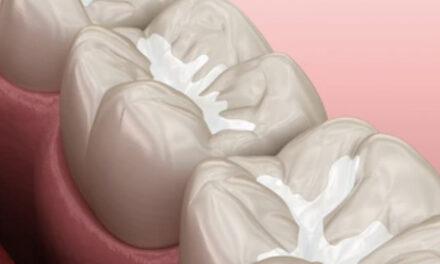Dentinogenesis imperfecta is a genetic disorder that affects the development of tooth enamel and dentin. This condition can lead to tooth discolouration, including blue teeth, or teeth turning blue. It can also lead to weakened teeth that are more prone to decay and damage. In this article, we discuss the types, causes and treatments for this condition.
Types of Dentinogenesis Imperfecta
Type I: This is the most common form of the condition, the cause being a mutation in the DSPP gene. (This gene provides instructions for making a protein that is critical for the proper mineralisation of tooth dentin.)
Type II: This type is caused by a mutation in the DSPP gene and more severe tooth discolouration and deformities characterise this type.
Type III: This is the rarest form of the condition and the cause is a mutation in the DSPP gene. The characteristics are a short stature and joint problems, as well as tooth discolouration and deformities.
Causes of Dentinogenesis Imperfecta
- It is a genetic disorder caused by mutations in the DSPP gene.
- The condition is inherited in an ‘autosomal dominant’ manner, which means that to develop the disorder, only one copy of the mutated gene is needed.
- The condition can also occur spontaneously due to a new mutation in the gene.
Who is Most Likely to be Affected by Dentinogenesis Imperfecta?
- Individuals with a family history of the disorder are prone to be affected.
- Those who have inherited the mutated gene from one or both parents.
- Spontaneous mutations can also occur, which can affect individuals without a family history.
How a Dentist Treats Dentinogenesis Imperfecta
Treatment for dentinogenesis imperfecta depends on the severity of the condition and the patient’s individual needs.
- Dentists may recommend using dental crowns or veneers to improve the appearance and strength of the teeth.
- Root canal treatment may be necessary in order to address tooth decay or damage.
- Orthodontic treatment may be necessary to correct misaligned teeth or bite problems.
- To monitor the condition and prevent further dental problems, arrange egular dental checkups and cleanings.
Preventing Dentinogenesis Imperfecta
Dentinogenesis imperfecta is a genetic disorder, so it is not possible to prevent it. However, proper dental hygiene practices can help prevent tooth decay and damage and maintain oral health.
Summary
- Dentinogenesis imperfecta is a rare genetic disorder that affects tooth enamel and dentin development.
- The condition can lead to tooth discolouration, weakened teeth and an increased susceptibility to dental problems.
- While the condition is not preventable, dentists can treat dentinogenesis imperfecta using a range of procedures, depending on the person’s needs.
- Proper dental hygiene practices can help prevent further dental problems and maintain good oral health.
If this condition affects you, or you have any other dental concerns, book an appointment with your dentist for an accurate diagnosis and appropriate treatment plan.





